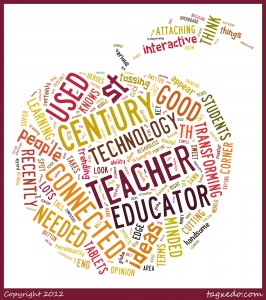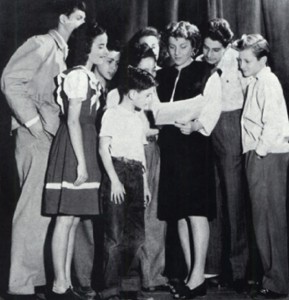LAUREL J. FELT is an expert in 21st century learning. She is an Instructional Design Specialist with the USC Dornsife Joint Educational Project, one of the largest and most well respected service-learning organizations in the country. She also consults with two non-profits: Laughter for a Change (L4C) and The African Network for Health Education (RAES). L4C employs improvisational theater games and comedy training to foster new forms of learning and contribute to healing and a sense of well-being, particularly among underserved populations. RAES, based in Senegal’s capital city of Dakar, supports innovative applications of information and communication technology to strengthen local health and education programs.
Currently a doctoral candidate in Communication at the USC Annenberg School for Communication and Journalism, Laurel is crafting a dissertation that showcases her expertise in designing innovative curriculum and conducting participatory assessment, and also honors her commitment to fostering social and emotional competence and media literacy. Specifically, this dissertation examines the impacts of an original, online curriculum aimed at enhancing undergraduates’ social and emotional competence by offering them opportunities to practice skills in service-learning contexts, think with/through media, and participate in a hybrid (online and offline) community of practice.
For Laurel, 21st century learning encompasses the following research interests: participatory learning[i]; social and emotional learning[ii]; new media literacies[iii]; traditional and evolving definitions of media literacy[iv]; and powerful play, a mode that combines fun with experimentation in hopes of facilitating transformative outcomes (e.g., joy, learning, rapport). Impact games and improvisation are both forms of powerful play[v].
Over the years, Laurel has explored these research interests in various roles:
- Lead Research Assistant with USC Project New Media Literacies’s program, Participatory Learning And You!;
- Teacher-Researcher with the Expanding Minds Program in Mumbai, India;
- Interim Instructional Design Coordinator with the USC Shoah Foundation;
- Research Assistant with Dr. Sheila Murphy’s entertainment-education research program at Hollywood, Health, and Society;
- Research Assistant with Dr. Stacy Smith’s females-in-film research program; and
- Co-chair of USC Impact Games.
Currently, Laurel has a book chapter and two peer-reviewed journal articles in press, and several projects in development that extend both theory and practice in the aforementioned research areas.
In terms of secondary research interests, Laurel is committed to designing, implementing, and championing methodologies that amplify participants’ voices in assessment activities[vi]. She hopes to use these inclusive tools for evaluating youth storytelling programs, since evaluations tend to highlight growth in only technical (and not also academic, social, and emotional) competence. Laurel foresees working with such individuals as improvisational and traditional theater educators, media literacy/production instructors, creative writing teachers, game designers, and librarians.
To conversations about teaching and learning in the 21st century, Laurel wishes to contribute evidence and strategies that support holism and balance, e.g., incorporating the cognitive AND the social-emotional, the digital AND the analog. Laurel also hopes to engage in dialogue with educational administrators and policymakers who under-appreciate how participation in activities that support self-expression and occur within a supportive community of practice, such as artistic endeavors, can enrich healthy, holistic development.
Laurel is a member of the Digital Media and Learning network, the National Association for Media Literacy Education, the International Communication Association, and the National Communication Association, and has presented papers at all of these organizations’ conferences. She is also an alumna of Northwestern University and Tufts University.
As an undergraduate at Northwestern University, Laurel completed minors in political science and French and earned a bachelor’s degree in social policy. Her applied experiences were just as (if not more) important than her classroom work. Laurel interned with U.S. Senator Daniel Patrick Moynihan in Washington, D.C., and the U.S. State Department in Vienna, Austria; she also spent her junior year abroad in Paris, France. During her three years on campus, Laurel studied and performed improvisational theater with a consistent ensemble, frequently volunteered with student film projects, and wrote for the nationally-recognized campus newspaper The Daily Northwestern in various capacities– as a features reporter, film critic, and weekly humor columnist. For her honors thesis, Laurel conducted one-on-one interviews with early childhood educators on-site in Chicago, Paris, and Oslo, examining if and how these participants’ self-reported professional priority – specifically, education or care – correlated with their nation’s social policies.
After graduation, Laurel interned with non-profit children’s theater/creative writing workshop Barrel of Monkeys, served as a media educator for The Chicago International Children’s Film Festival (the world’s largest festival of children’s film), and worked in the cutting-edge multimedia department of a suburban library. Six months later, she relocated to Boston…
Laurel attended Tufts University from 2004–2006, earning a master’s degree in child development. For her applied practicum, she interned for PBS Kids’s educational television show Fetch! with Ruff Ruffman. Laurel also facilitated formative evaluation of PBS Kids’s educational television show Postcards from Buster by training and supervising a team of data collectors, as well as liaising with five urban, 1st-grade classrooms. Laurel’s honors thesis, which utilized survey research and focus groups, contextualized middle school girls’ use of instant messaging within an Ericksonian developmental framework. Laurel identified the various types of social aggression that participants reported in that online space, and also explained the ways in which certain features of instant messaging met these adolescents’ developmental and functional needs. Finally, Laurel worked for four years as an early childhood educator, employed as a Graduate Teaching Assistant at the department’s laboratory school, the Eliot-Pearson Children’s School, and previously at Harvard Yard Child Care Center and the Open Center for Children. Throughout these years, Laurel sat on the Steering Committee of Teachers Resisting Unhealthy Children’s Entertainment, assessing the developmental productiveness of various best-selling toys.
After graduation, she worked for two years as an editor and freelance writer of educational print products for primary school students and teachers. She also performed with all-female improvisational theater troupe Valid Hysteria, and co-founded a Los Angeles-based company that produced live-action, webisodic e-cards featuring a cast of irrepressible twenty-something’s. Then she started her PhD…





